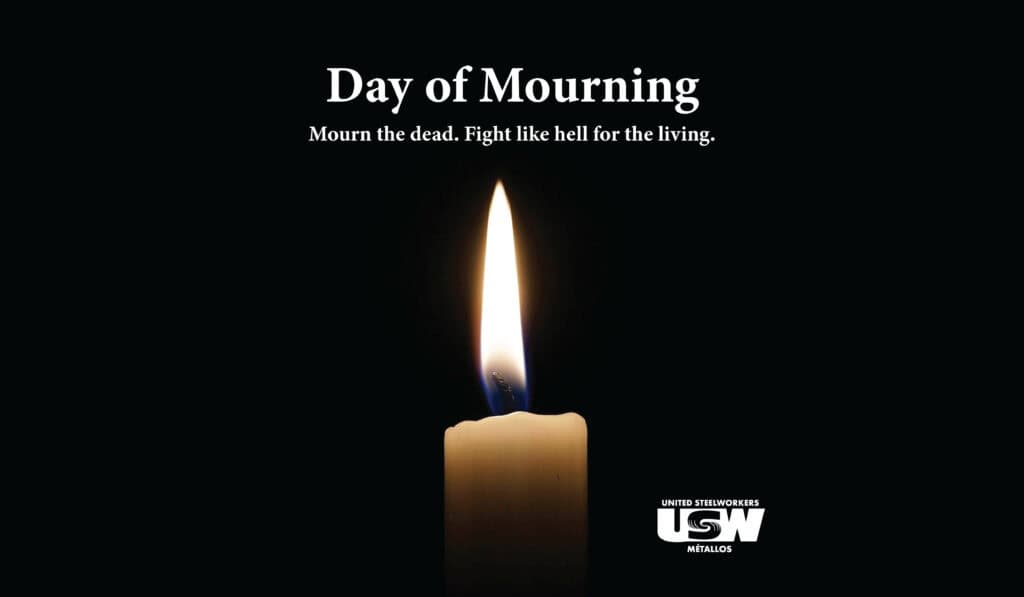Every year on April 28 we gather to commemorate the National Day of Mourning. This day marks the day in 1914 the first Workers’ Compensation Act was adopted. We gather to mourn for the dead and to fight for the living.
2024 marks the 50th anniversary of the Elliot Lake wildcat strike, where uranium miners in Northern Ontario, members of the Steelworkers union, walked out to protest their employer’s withholding of information about the cause of worker deaths.
That fight resulted in the passing of the Occupational Health and Safety Act in Ontario and led to significant changes to the Canada Labour Code including landmark health and safety rights: the right to refuse unsafe work, the right to know and the right to participate.
2024 is also the 20th anniversary of the Westray Law, named for the 26 workers in Plymouth, N.S., who were needlessly killed in the 1992 Westray Mine explosion. Following this disaster, Canada’s unions – led by the USW – lobbied for change, so that employers could be convicted of criminal negligence. In 2004, the Westray sections of the Criminal Code of Canada were brought into effect, allowing corporations to be held criminally liable for workplace deaths and injuries.
However, since its inception, only a handful of criminal charges have been laid, due to inconsistent and insufficient enforcement of the law. Most of these cases resulted in fines, which major corporations can easily pay. When criminal negligence leads to death, bosses need to go to jail. Political leaders continue to defer to business interests by weakening health and safety legislation, provincially and federally.
Not every workplace fatality or serious injury will involve criminal negligence, but every worker deserves to have those incidents investigated properly to make that determination. There have been too many worker deaths in the 20 years since the Westray amendments came into force. Employers haven’t been held sufficiently accountable because of a lack of investigation, lack of evidence or the Crown decided not to prosecute.
We need stronger enforcement of the Westray amendments. It requires a commitment from all levels of government to provide the necessary resources (money and people), training and a co-ordinated effort from all involved in enforcement (Crown, police, and regulatory inspectors).
Employers have the greatest control over the workplace. Far too often, money is the primary focus. While employers need profits to provide jobs, it should never be at the expense of a worker’s life. If the employer’s efforts for avoiding accountability were focused on safety, and if the money they spent on fines was invested in safety, then we would see the results as fewer worker fatalities instead of the relatively constant number reported each year.
We need a cultural shift in society. Safe work now!
On April 28, the National Day of Mourning:
Recommit to:
- Educate others about their health and safety rights, responsibilities and prevention measures.
- Insist on effective workplace prevention programs developed with full worker participation.
- Insist on training that supports the identification, assessment and control of workplace hazards.
- Encourage local media to report on health, safety and environmental issues.
- Press elected officials to support stronger regulations and better enforcement of existing laws.
- Create monuments to promote public awareness of workplace health and safety.
In solidarity,
Marty Warren
USW National Director
Scott Lunny
USW District 3 Director (Western Canada and the Territories)
Dominic Lemieux
USW District 5 Director (Québec)
Myles Sullivan
USW District 6 Director (Ontario and Atlantic Canada)
Share on Facebook



